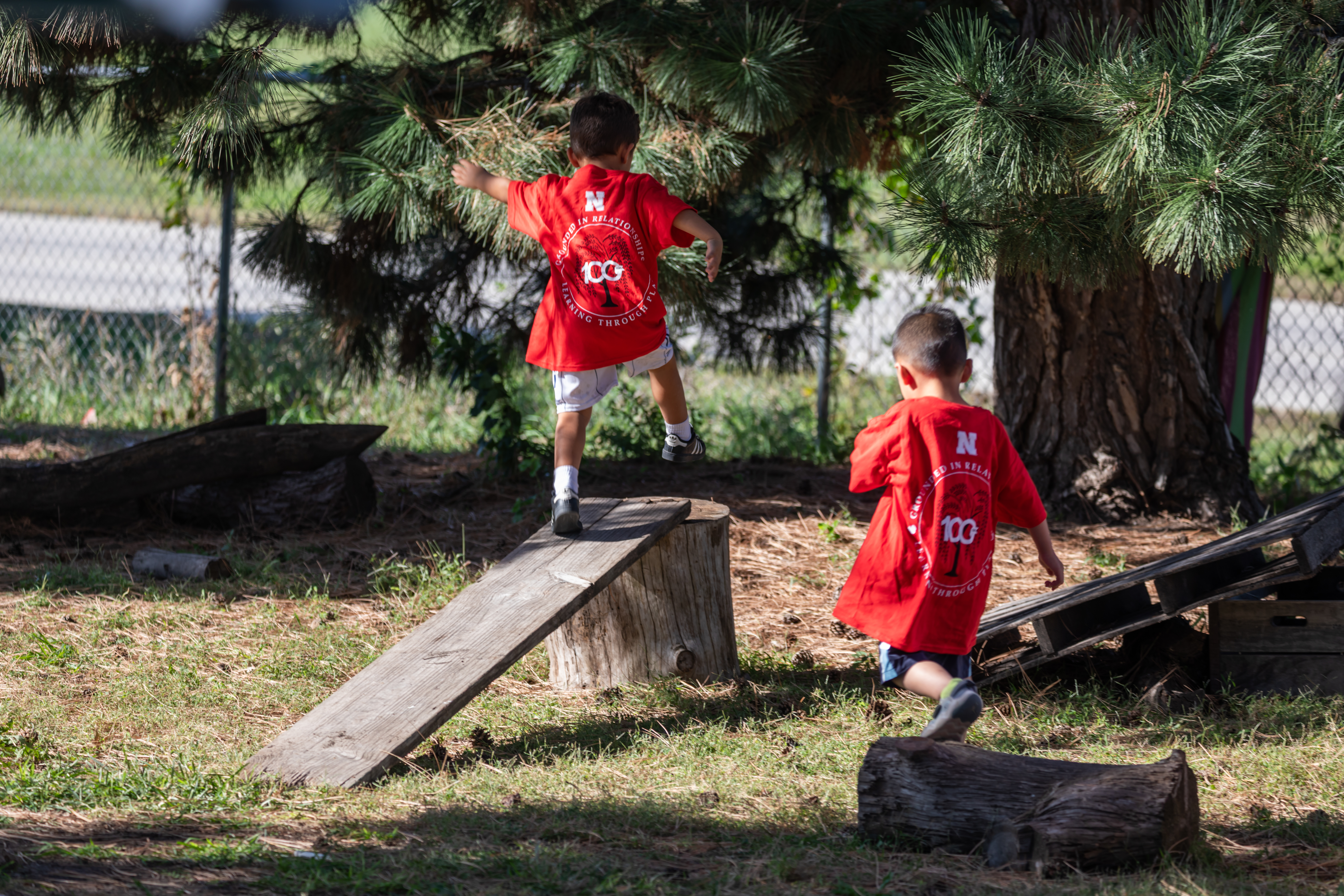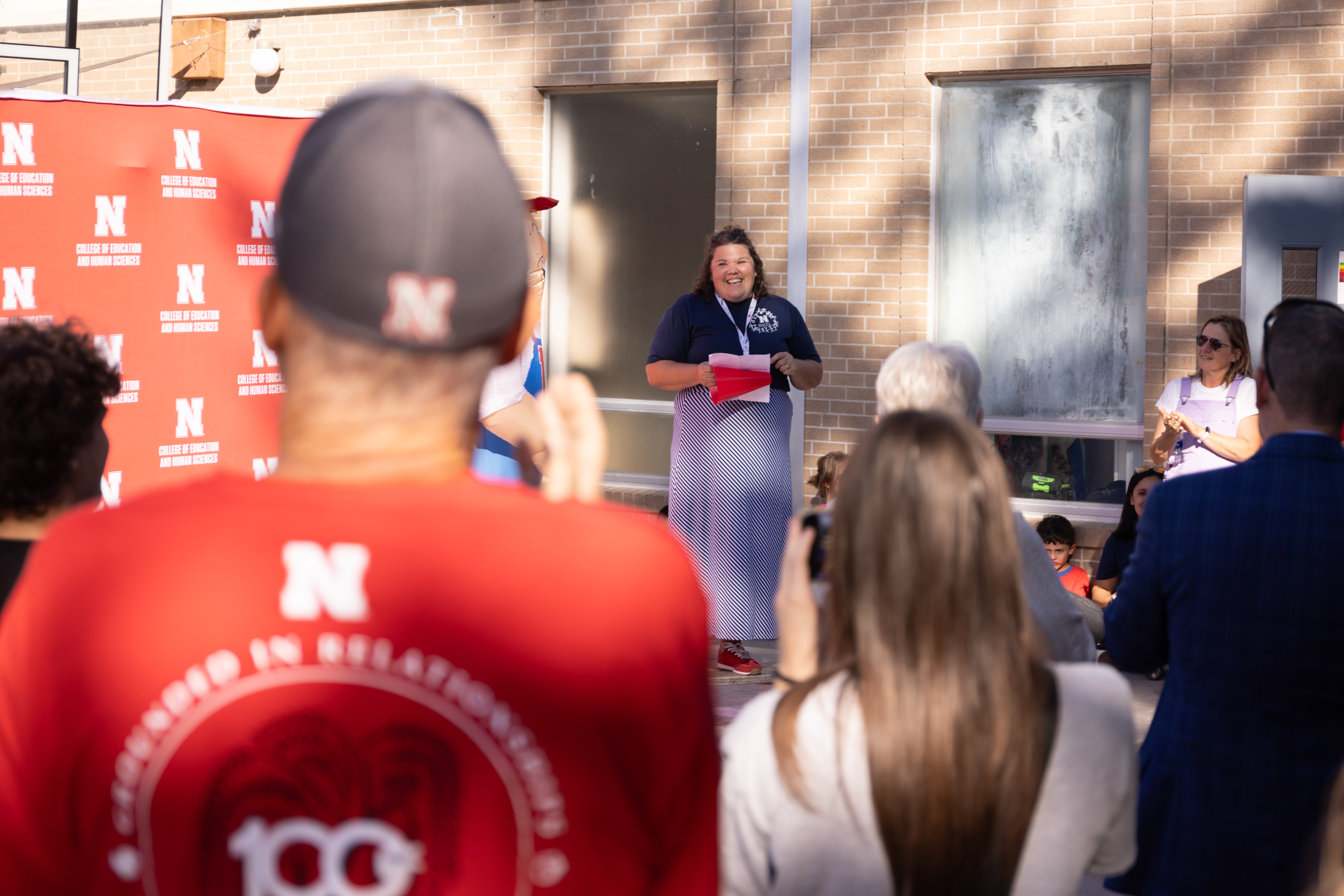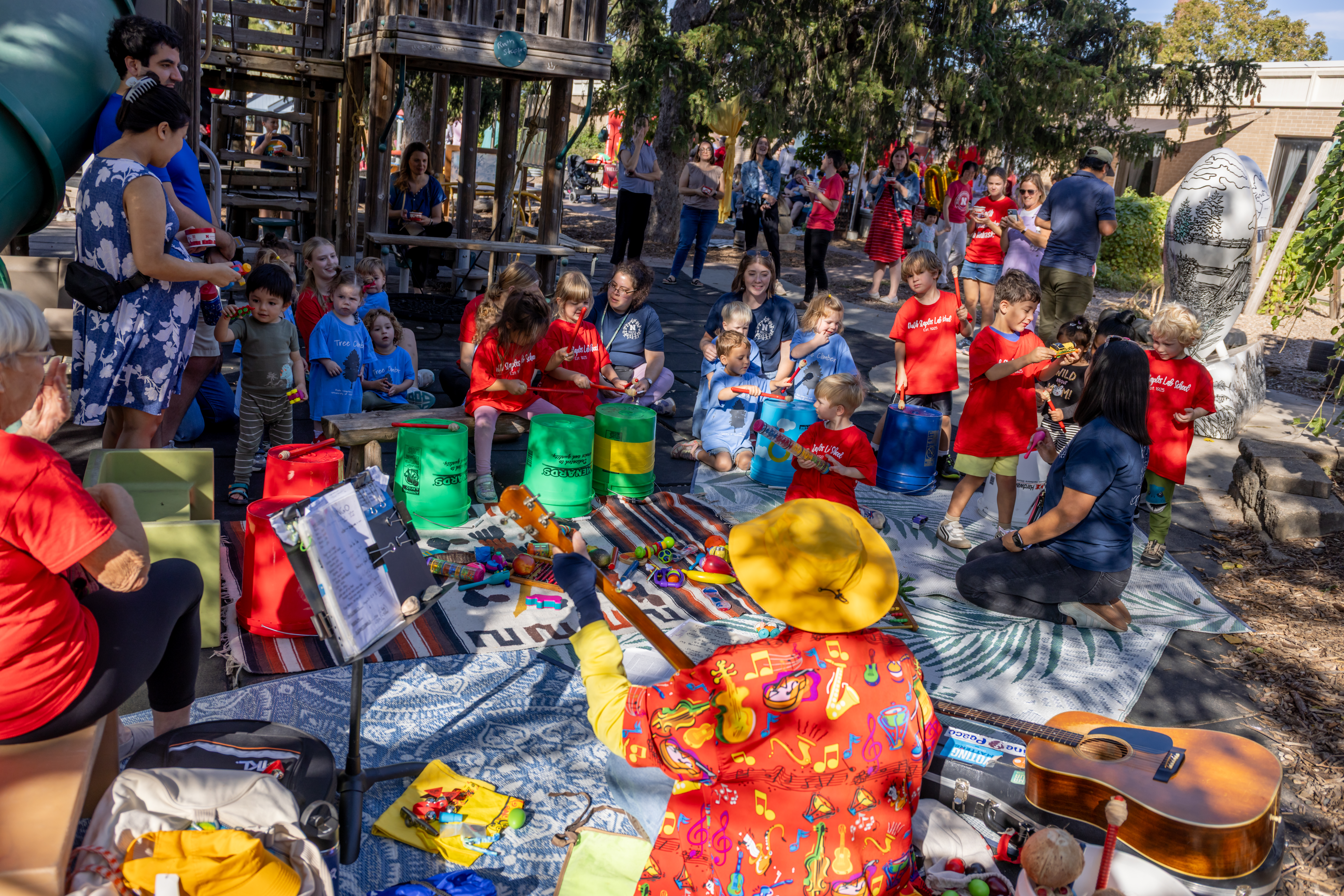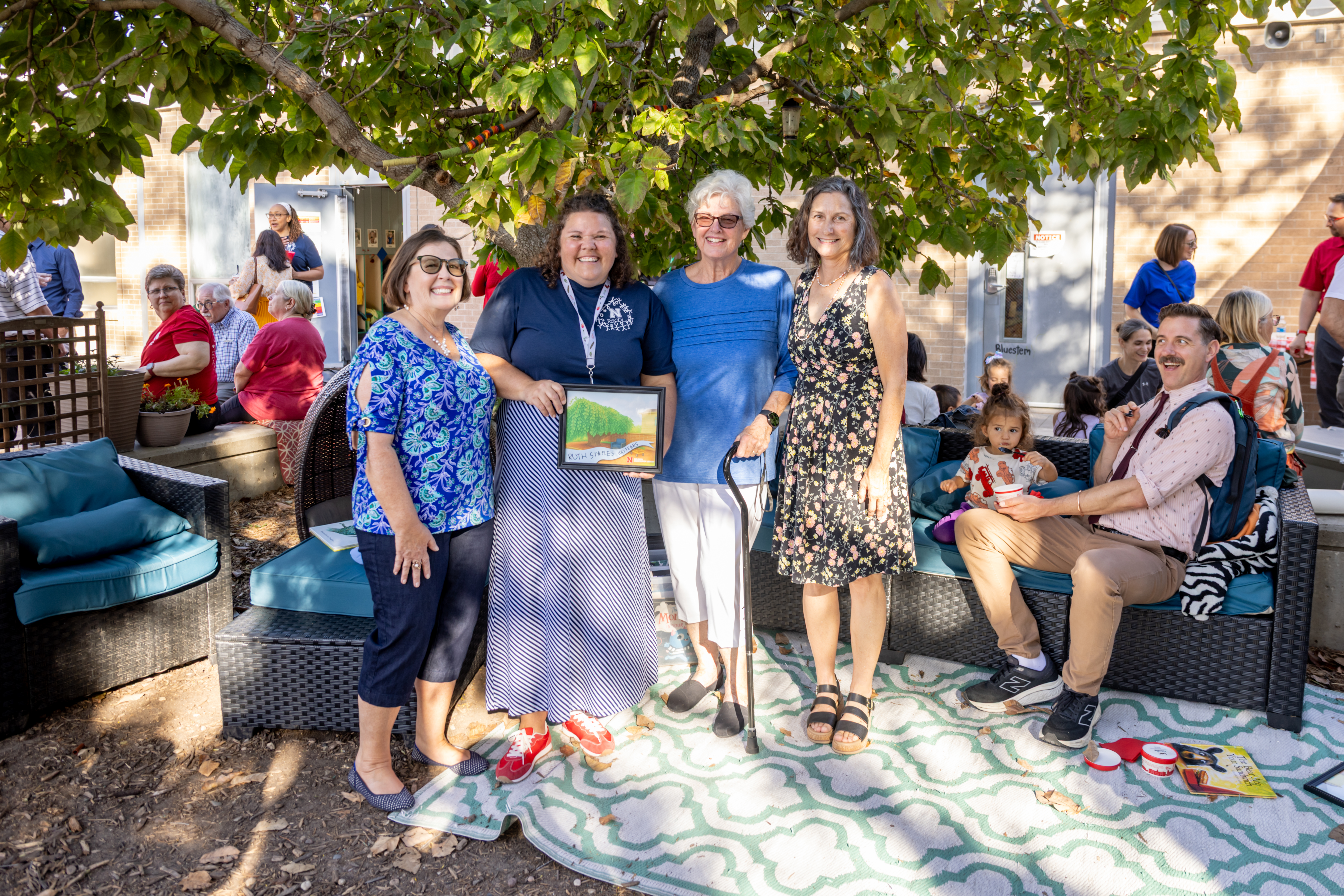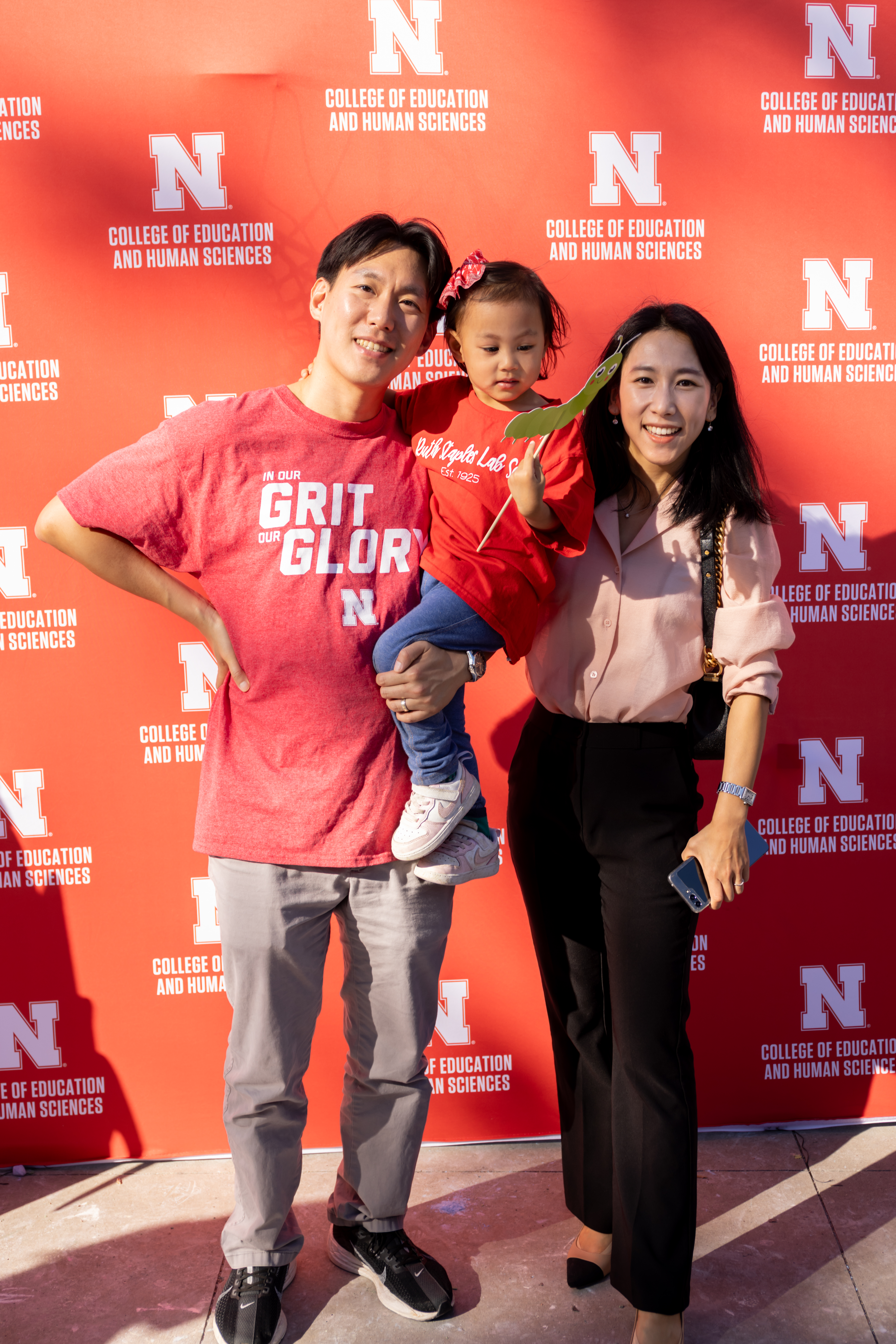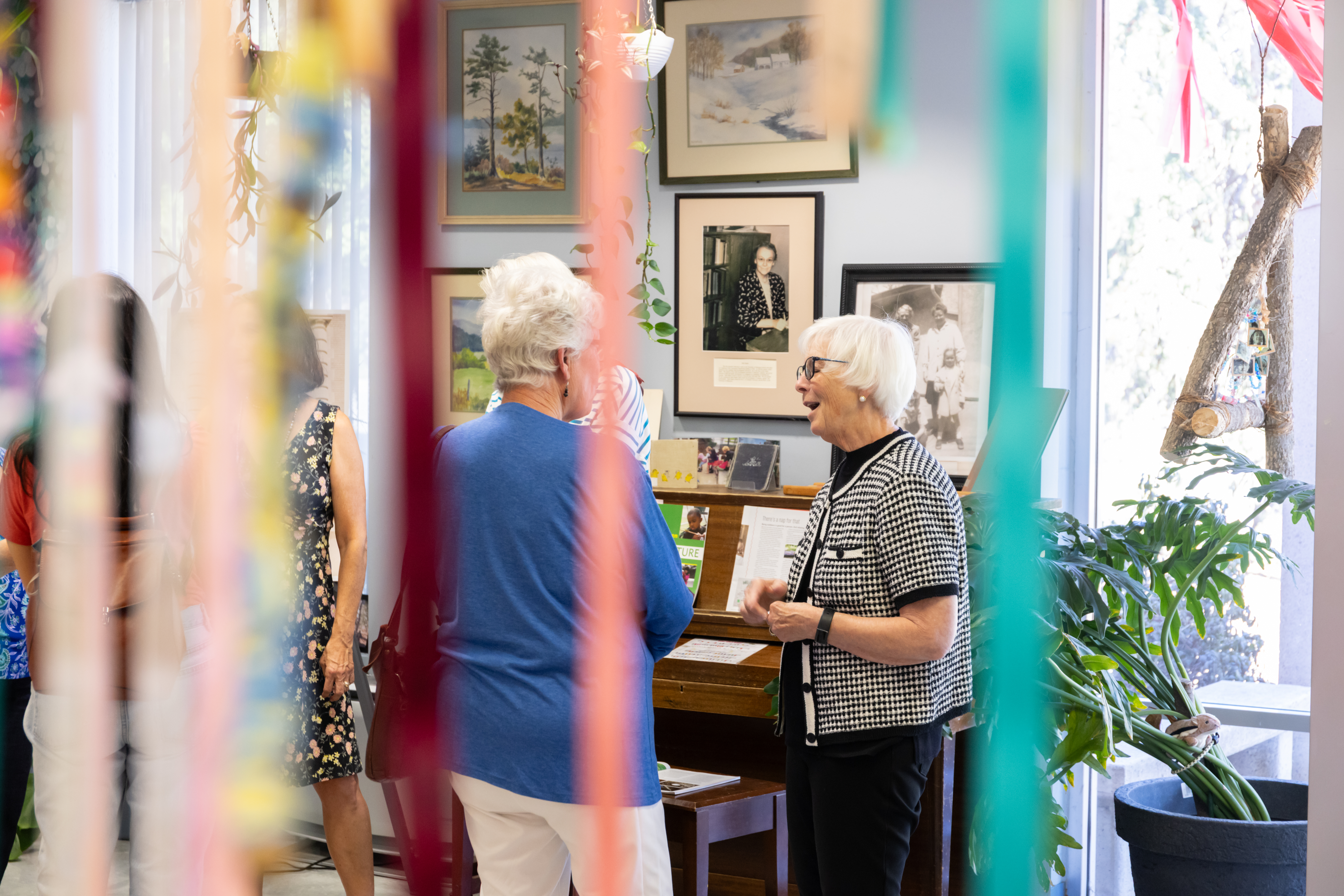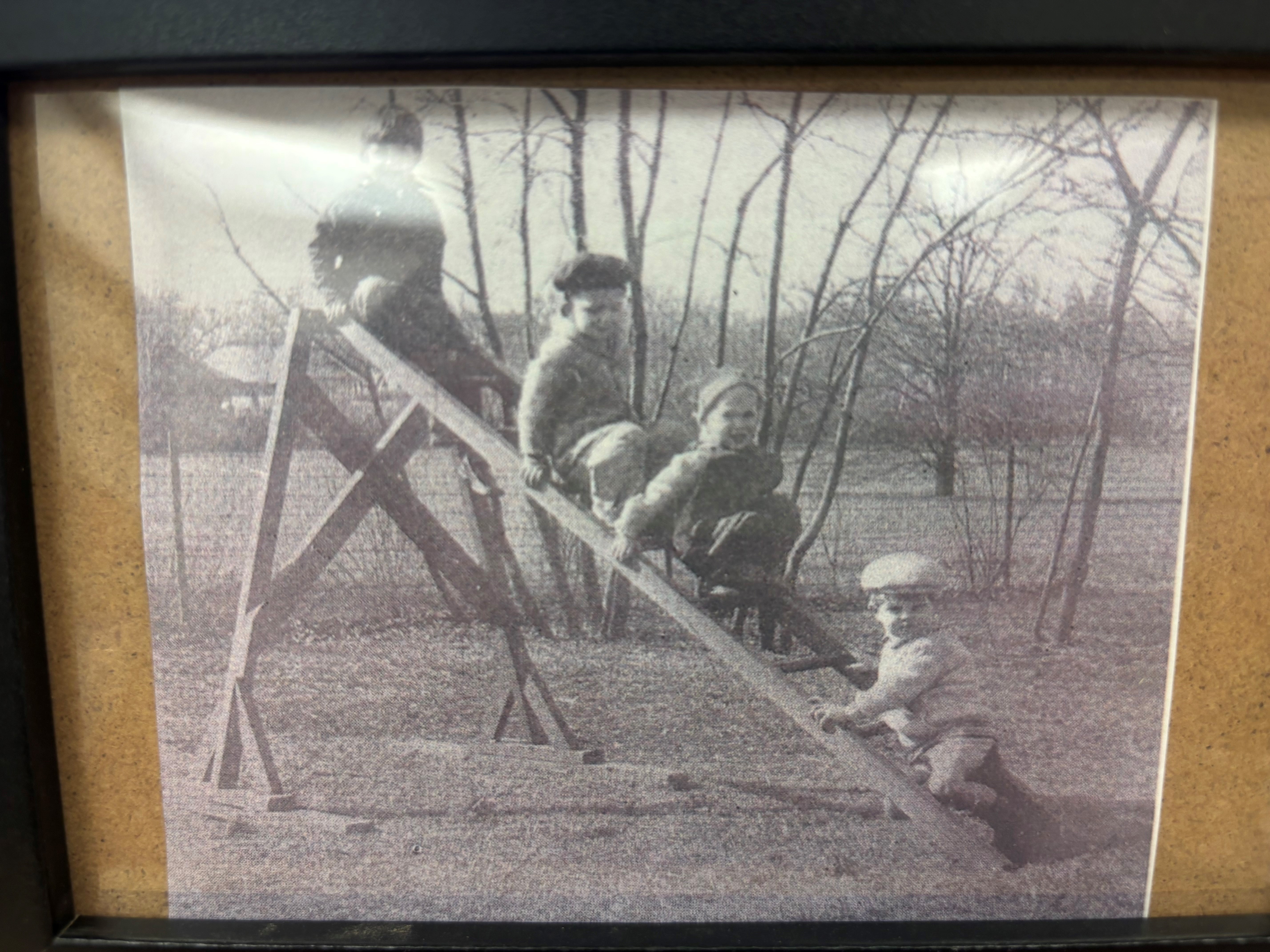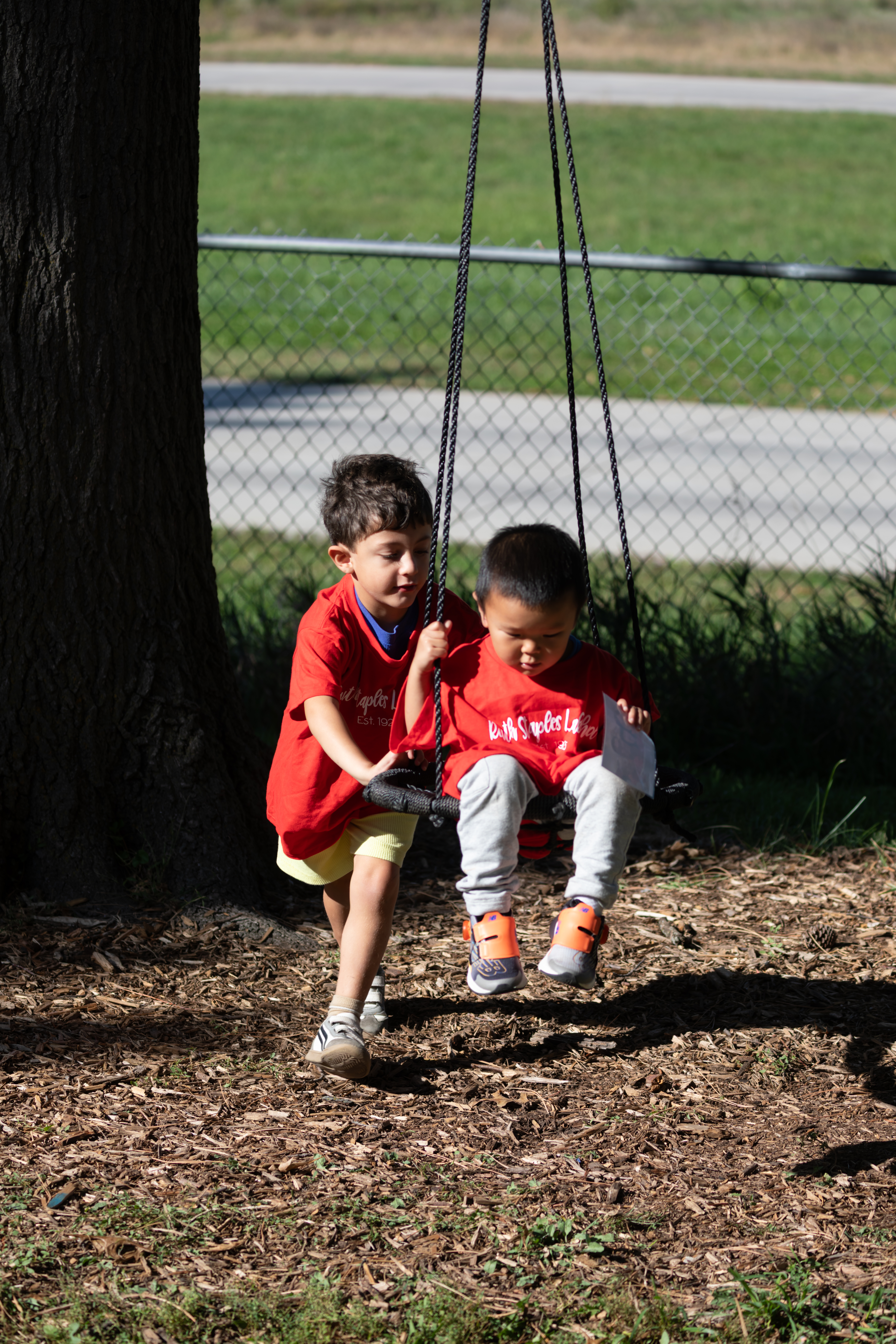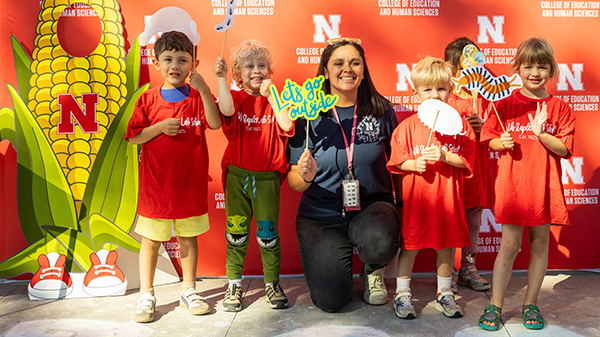 Students at the Ruth Staples Child Development Laboratory at the University of Nebraska-Lincoln pose for photos at an open house event celebrating the school's 100th anniversary.
Students at the Ruth Staples Child Development Laboratory at the University of Nebraska-Lincoln pose for photos at an open house event celebrating the school's 100th anniversary.The Ruth Staples Child Development Laboratory has been a place of discovery for 100 years.
It’s where generations of children have developed a love of nature and learning, where aspiring teachers have found their calling, and where researchers have cultivated new ways to reach young learners.
Named after its first director, the school was founded on the University of Nebraska–Lincoln campus in 1925 to care for children and serve as a lab setting to study child development.
It’s thought to be one of the first laboratory schools established at a university west of the Mississippi River, allowing researchers and college students studying education to observe children’s behavior and hone their teaching skills.
And now, Ruth Staples students, staff, families, and alumni are celebrating 100 years of high-quality early childhood education.
“In 1925, (Ruth Staples) created that space that was charged with focusing on where theory meets practice, where outreach is happening, and where children, families, and teachers are all learning together,” said director Jenny Leeper Miller. “And the fact that we’re still doing that 100 years later is pretty phenomenal.”
So, what makes a lab school different from a typical child care program?
Ruth Staples has a three-part mission: education, outreach, and research. In addition to teaching and caring for 39 children, ages 18 months to five years, aspiring teachers studying at UNL visit Ruth Staples for practicum experiences. Each semester, around 30 undergraduate and six to 10 student teachers learn alongside Ruth Staples’ experienced faculty, helping to grow Nebraska’s early childhood workforce pipeline.
Ruth Staples also partners with different departments on campus for research purposes, allowing researchers to study, for example, children’s social and emotional skills or teacher training methods.
The outreach part involves translating research and early childhood best practices for implementation in programs across Nebraska and the country, like the Learning Environments for All to Flourish (LEAF) Initiative. Funded by a UNL Grand Challenges Catalyst Award, it aims to improve children's health, development, and learning by increasing access to green spaces in early care and education settings. Ruth Staples is one of the program’s early childhood partners.
To mark educating young children for a century, the school held a celebration—part open house, part birthday party—on Oct. 10. Current students drummed on overturned buckets in bright primary colors, and former students ran to hug their old teachers—two girls excitedly showed coach and master teacher Mismiki Montgomery how they could hop on one foot.
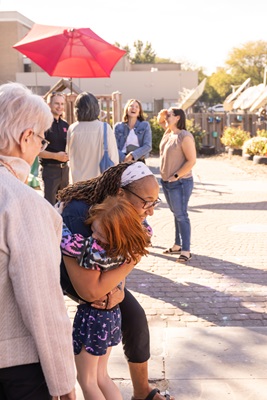 A former student hugs teacher Mismiki Montgomery
A former student hugs teacher Mismiki MontgomeryFour past directors attended, including Julia Torquati, a professor in the Department of Child, Youth and Family Studies and a UNL community chair at the Buffett Early Childhood Institute at the University of Nebraska.
Torquati remembers being awarded a grant from the U.S. Environmental Protection Agency in 2001 to design environments and implement activities in and about nature with young children.
“Ours was the first grant application the EPA had ever received that focused on early childhood,” she said. “All development occurs in the context of important relationships, and nurturing children's connection to the natural world is an extension of that. Children need a sense of belonging in relationships and in school, and they need a sense of belonging within nature. In this sense, Ruth Staples is a place-based early childhood program.”
As a young child whose father taught at UNL, Josie Schrodek attended Ruth Staples from 1991-93. She now sends her 3-year-old son to the school, making her one of several multi-generational families.
“My earliest memory is of here,” she said. “As a campus family, this is such an institution.”
While there’s a perception that the lab school only serves UNL staff and faculty, children from across Lincoln can attend. Current families come from a variety of backgrounds, speaking more than 11 languages at home. Ruth Staples is also an inclusive program that teaches special education students alongside their peers.
When Schrodek’s family decided to move back to Nebraska from California, she wasted no time securing a spot on the Ruth Staples waitlist.
“I know this is the best child care center in the state, if not the country,” Schrodek said. “His language exploded as soon as he got here. What the teachers do here that I love so much is spending time talking and explaining things.”
Her kids were used to spending lots of time outside in sunny California, and as Torquati noted, outdoor learning and exploration are a core component of the Ruth Staples curriculum.
Children eat and even nap outside. In addition to the typical playground equipment, there is a mini climbing wall, stumps to jump off, a garden, a sandy area for digging, playhouses, and a mud kitchen.
“We believe in a nature-based approach to curriculum and instruction,” Leeper Miller said. “The children can become engineers and scientists and mathematicians and musicians, and they get to move around the loose parts of nature to design their own playscapes.”
And while the Ruth Staples community reflects on the past, they’re also looking to the future, and the possibility of a larger, updated facility. Plans have been drawn up, and fundraising is ongoing. A larger space would enable more research, more professional development, more partnerships with early childhood programs, and the opportunity to reach more learners of all abilities.
“We have a nationally accredited program,” Leeper Miller said. “We are demonstrating the gold standard of early childhood ... and we just want to elevate that mission and impact in a new space.”
Erin Duffy is the managing editor at the Buffett Early Childhood Institute at the University of Nebraska and writes about early childhood issues that affect children, families, educators, and communities. Previously, she spent more than a decade covering education stories and more for daily newspapers.



